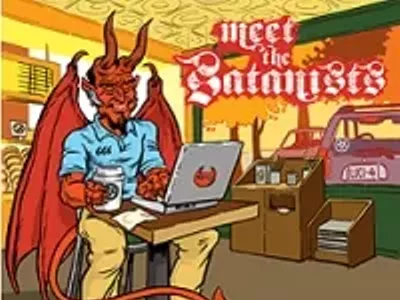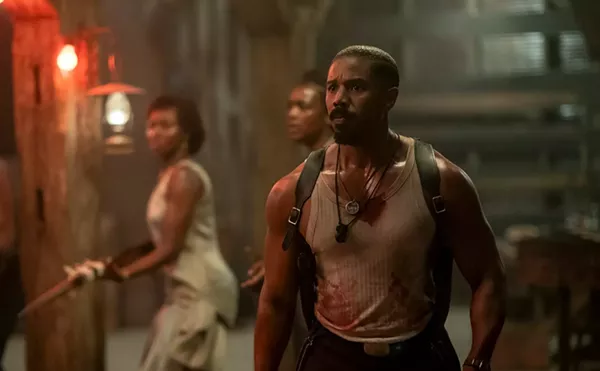
Audio By Carbonatix
[
{
"name": "GPT - Leaderboard - Inline - Content",
"component": "35519556",
"insertPoint": "5th",
"startingPoint": "3",
"requiredCountToDisplay": "3",
"maxInsertions": 100,
"adList": [
{
"adPreset": "LeaderboardInline"
}
]
}
]
Tim Robbins has his heart on his sleeve so much of the time, it's easy to forget how great a villain he can be. In the new, real-life political thriller Catch a Fire, Bill O'Reilly's favorite liberal whipping boy gets to have his cake and eat it too: Playing an apartheid-era terrorism agent, Robbins shows off his best slithery bad-guy routine, all while making a prescient statement about how corrupt governments can drive even the most mild-mannered people to extreme ends.
The film's setting is early-1980s South Africa, when Nelson Mandela's African National Congress was gaining a foothold in the country through an often-violent underground resistance. Blithely unconcerned with politics is Patrick Chamusso (Derek Luke), an oil-refinery worker who turns off the radical radio broadcasts his mother-in-law listens to every night, but can't ignore the police shakedowns for terrorists that happen at work on a regular basis. When he plays hooky one day to take his boys' soccer team to a match, Patrick's little white lie inadvertently makes him the prime suspect in a bombing at the refinery. Enter Nic Vos (Robbins), a casually cruel Afrikaner security agent in charge of rooting out the ANC operatives that live and work among the country's black majority.
Tortured by the police and every skeleton in his past dug up, Patrick is eventually cleared of wrongdoing, but his life is in shambles; even his wife, Precious (Bonnie Henna), has been subjected to solitary confinement. With no job to go back to and his family's trust shaken, Patrick joins up with the ANC, willing to risk his life to overthrow the white minority in power.
What elevates Catch a Fire above a stock Hollywood thriller is director Phillip Noyce's dogged insistence on humanizing all sides of the issue. Luke, a subtle, underrated young actor, leaves no doubt as to why a mild-mannered average joe would become a single-minded potential martyr. Neither he nor Noyce downplays the violence Patrick is willing to inflict for the cause, nor do they ignore Patrick's less-than-saintly qualities.
And then there's Robbins, whose calm, collected Nic is a brilliant study in contradictions: A folk-singing family man who, in one of the film's most chilling scenes, teaches his daughters how to shoot a pistol in case the ANC tries to assassinate them. Nic isn't an inherently evil man; rather, the routine of apartheid has instilled a sense of comfort and entitlement, something he's not quite willing to give up. Screenwriter Shawn Slovo smartly portrays the Afrikaners as aware of their growing ineffectualness: These are people who know they're going to be out of power someday, and are clinging to whatever systems they have left.
Noyce has spent most of his career making high-octane Hollywood trash (Sliver, The Bone Collector), but in recent years has managed to meld his big-budget thriller skills with a sense of social consciousness that isn't too preachy (The Quiet American, Rabbit-Proof Fence). Catch a Fire succumbs to a few clichés — its score is weak, and there's a clumsy real-life documentary sequence at the end — but it's a vibrant, exciting and genuinely complex piece of work. Like Robbins, Noyce has finally found a way to entertain and inform at the same time.
Michael Hastings writes about film for Metro Times. Send comments to letters@metrotimes.com.





